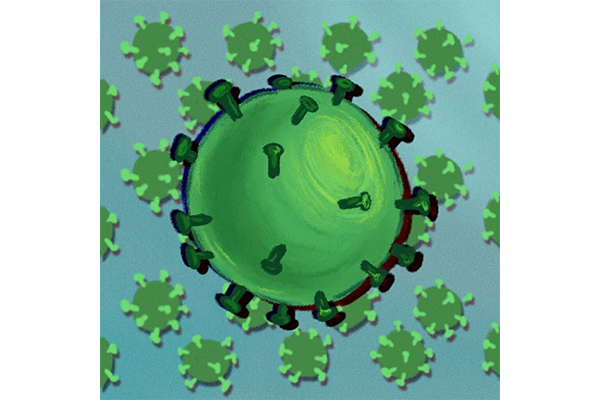CDC decreases isolation recommendation to 5 days, UT follows recommendation
January 20, 2022
The Centers for Disease Control and Prevention shortened the recommended COVID-19 isolation period from 10 days to five days at the end of December, and UT changed its instructions for community members who test positive to reflect the change.
Terrance Hines, University Health Services’ chief medical officer and executive director, said if someone in the UT community tests positive, they should isolate for a minimum of five days. If symptoms improve for the individual after five days or they are asymptomatic, they can stop isolation, but it is recommended they wear a mask around other people for at least five more days. After isolation, Hines recommends individuals get a rapid antigen test done if they are going to be in a high-risk situation.
“(Five days is) the absolute minimum for folks who are isolating,” Hines said. “In certain situations, they might want to seek an additional test to get a test of cure, or their infection has resolved.”
Jaquelin Dudley, a molecular biosciences and oncology professor, said the CDC decreased the isolation guidelines because they now have a better understanding of how the virus transmits.
“If you’re not having symptoms, and you’ve been vaccinated, it’s really unlikely that you’re going to transmit after five days,” Dudley said.
Kelly Soucy, Student Emergency Services director, said SES has a partnership with Austin Public Health to provide students who do not have a private bedroom and bathroom a space in their isolation facilities. Students are given SES’ contact information when they test positive so they can request guidance on isolating at an alternate isolation location, and can stay at the isolation facilities for 10 days.
Soucy said SES sends an absence notification to a student’s professor if they request it, but they do not put a certain amount of days on the notification. Soucy said the Provost’s office sent a message out at the beginning of the semester encouraging faculty to be supportive of and flexible for students during the omicron surge, but they are not required to provide accommodations.
“If a student (tests) positive, if we know they’ve tested on campus, we’ll use that as documentation,” Soucy said. “We don’t actually disclose that they’re COVID positive, that’s up to the student.”



